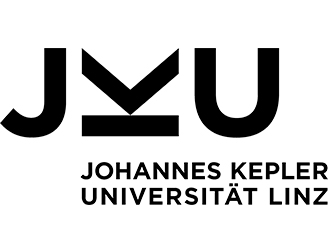About UR
Traditio et Innovatio - the University of Rostock’s (UR) motto also applies to its internationalisation efforts. Founded in 1419 - as one of the oldest and most traditional universities in Germany - UR is proud of its long history of scientific relations, especially in the Baltic region. Being a public university with 20,000 students and 2,200 employees, the UR sees itself as a pivotal part of European research and education, and, in an increasingly interconnected world, promotes vision this of development with enhanced internationalisation efforts in the form of innovative and international projects. The UR skillfully leverages its regional advantages as a coastal city within a predominantly rural environment.
EU-funded programs such as the "European Master Program for Rural Animators (EMRA)" or the Erasmus Mundus "Integrated Advanced Ship Design (EMSHIP)" program have been successful in creating international partnerships and offering students and visiting scholars highly innovative and competitive study and work programs within both a domestic and international framework. Participation in projects in the Baltic region strengthens established academic programs at the UR such as aquaculture, marine biology, agriculture and environmental sciences while also promoting close cooperation with the Leibniz Institute for Baltic Sea Research. Although the Baltic Sea region is the regional focus of international cooperation, the university’s vision of internationalisation is hardly restricted to this region. Other regions targeted for partnerships and project financing include Eastern Europe, the USA, Latin America and East Asia. Research cooperation with European Union programs is of tremendous importance.
The UR can persuade national or international students in many areas such as medicine, computer science or mechanical engineering and should continue to pursue these successes with concrete measures to internationalisation. Summer schools, double degree programs, the Multinational Graduate Program in Demography (Demo-Doc) or the international courses in "International Physics" and "Computational Engineering" are important blocks for the international orientation our university.
The Faculty of Economic and Social Sciences, to which this project's key persons belong, comprises four institutes covering the fields of business, economics, political science, and sociology and demography. There are 21 full professors, 4 junior professors plus some 60 additional academic and 17 non-academic staff. About 2,000 students are enrolled in five bachelor and six master programmes in business, business education, demography, economics, political science, and sociology, plus a doctoral programme on demographic change. Additionally, the faculty takes an active part in numerous other undergraduate and graduate programmes organised by other faculties, contributing modules in its fields of expertise. Research covers the full range of economic and social sciences. Important areas of specialisation are: causes and consequences of demographic change, collective identities, political area studies, sustainability in dynamic economies, and service management and service markets.
Prof. Dr. Peter Christoph Lorson
This project involves three members of the Chair of Financial and Management Accounting, Controlling, Auditing, who hold specific knowledge in public sector accounting, which is also reflected in their conference attendance and their recent publications.
Prof. Dr. Peter Lorson is Full Professor holding the above-mentioned Chair, Executive Director of the Center for Accounting and Auditing at UR (http://www.wiwi.uni-rostock.de/caa/) and member of the examination committee for auditors. He was member of the privatisation committee of the Saarland and worked for several years full-time as freelancer (consultant and trainer) in the field of Financial Accounting (e.g. for multi-national companies of the auditing, automotive and software industry). His preferred research fields, represented in his publications, are Financial and Management Accounting and Reporting for Private and Public Sector Organizations as well as Convergence of Accounting and Reporting Systems (external versus internal, international versus national, private sector versus public sector). He is co-author of textbooks e.g. for Financial Statement Analysis and Management Accounting as well as of several comments on national and international balance-sheet-standards. A particular research focus in the last years has been on Public Sector Accounting and Management.
About UC
The University of Coimbra (UC) is an institution dedicated to the creation, critical analysis, transmission and diffusion of culture, science and technology that, through investigation, teaching and other services to the community, contributes to the social and economic development, to the environment protection, to promoting social justice and enlighten and responsible citizenship, and to the consolidation of knowledge-based sovereignty. Celebrating its 728th anniversary in 2018, UC holds a multi-century historical legacy and is a cultural matrix in the Portuguese speaking world.
In the traditional line of the European humanism, UC is an institution ever open to the world, to the cooperation between civilizations and to the interaction between cultures, always respecting the values of independency, tolerance and dialogue, proclaimed in the Magna Carta of the European Universities. UC has 8 Faculties (Medicine, Law, Science and Technology, Economics, Psychology and Education Sciences, Pharmacy, Letters, and Sports Sciences and Physical Education), 2 museums, 2 stadiums, 23 libraries and 1 botanic garden. If offers 35 undergraduate courses, 120 master courses and 78 PhD courses. It has 22,800 students in the three cycles of studies, about half of them in master degrees. It holds particular expertise concerning Medicine and Sciences and Technology, in which it has been awarded several prizes.
This project is particular important within the scope of the Faculty of Economics. This Faculty was created in 1972, initially only with an undergraduate degree in Economics. Currently it offers degrees in the three cycles of studies, adding also the areas of Sociology, Business Studies and International Relations. Nowadays it has around 2,600 students and 110 professors, working in a relaxed environment of great proximity. The teaching staff is highly qualified and devoted to their academic duties; at the same time, they are relatively young, which favours a relationship with the students that is as open as quite demanding.
In the business studies area there are currently three Master Degrees: Accounting and Finance, Management, and Marketing. There are also two MBAs (MBA for Executives and MBA in Marketing), and two post-graduation degrees: People Management and Organisational Performance, and Local Government Management. Since 1993 FEUC publishes a scientific journal Notas Económicas (http://www.uc.pt/en/feuc/notas-economicas/), which publishes original papers from national and international researchers, after a double-blind review process. The journal is indexed by JEL, e-JEL, EconLit and RePEc.
Prof. Susana Jorge
The module proposed in this project is particularly relevant within the MSc in Accounting and Finance. The importance of Public Sector Accounting has been acknowledged in this degree (and in FEUC at large) since 2005/06, with particular emphasis since 2010/11. From this year, there has been an increased number of students, sometimes over 40, despite being an optional course. The course has been lectured by Prof. Susana Jorge, who has been awarded a PhD in Accounting and Finance by the University of Birmingham (UK) in 2003, developing a thesis on local government accounting.
She has been researching and publishing in public sector accounting and reporting, being currently member of the Board of the CIGAR Network (Comparative International Governmental Accounting Research). She is also linked to other research and academic networks: European Group of Public Management – EGPA (Permanent Study Group XII on Public Sector Accounting and Financial Management) and International Research Society for Public Management – IRSPM (Special Interest Group on Accounting, Accountability and Performance Measurement). She currently seats in the Portuguese accounting standard-setter, particularly in the Public Sector Accounting Committee.
Prof. Susana Jorge has also been reviewer for several international conferences and journals in the field of public sector accounting, e.g. Public Money and Management, Financial Accountability and Management, Accounting, Accountability and Auditing Journal and Spanish Accounting Review. She is affiliated researcher in the Research Centre in Political Science (CICP) of the University of Minho, in Portugal, being chair of the research line in public sector accounting and finance.
About UTA
University of Tampere (UTA) is a higher education institution situated in one of the largest cities in Finland. Its scope of work includes both high-quality scientific research and research-based teaching on undergraduate, graduate and postgraduate levels. The university has historically focused particularly on the social sciences and the multi-disciplinary School of Management is an excellent manifestation of this approach. Some 15,000 students are currently pursuing degrees at UTA.
Every year approximately one thousand master's degrees and one hundred doctoral degrees are produced. The personnel number is about 2,000. The origins of the University in its forerunner, the Civic College, have endowed it with a singularly clear and extensive mission to serve society. The UTA is Finland 's biggest provider of higher education in the field of social sciences and the accompanying administrative sciences. UTA is renowned for its high-quality teaching. Currently, there are 25 Bachelor's degree, 24 Master's degree and 15 Doctoral degree programmes. The university is also keen to develop into an international research university with extensive co-operation networks in teaching and research throughout Europe and beyond.
The main forms of internationalisation are mobility of students, researchers and teachers, likewise the master's programmes offered through the medium of English and associated research established in fields in which the University is especially strong. The new University Strategy for 2016-2020 adopted by the University Board outlines the actions of the University in the coming years. In 2020, UTA will be an international research university and a significant generator of innovative, new knowledge. This will be facilitated by the new university in Tampere, which will merge the three higher education institutions. Thus, this project perfectly fits into UTA's efforts towards internationalisation.
The University is committed to multidisciplinary research, and to fostering opportunities for its researchers to do it. The goal is the establishment of an international academic community characterised by high-quality, original research with social impact. The University thrives on the mobility of ideas and people. Thus, the University of Tampere will be a shared space where Finnish and international experts develop global knowledge, diverse perspectives and the innovations that spring from them. University of Tampere is one of the very few Finnish institutions in which it is possible to major in public sector financial management (i.e. public sector accounting, reporting and auditing). The key persons involved in the project, Prof. Eija Vinnari and Prof. Lasse Oulasvirta, are renowned experts in the field, having published extensively on the topic and also having acted as expert advisors to the Finnish government. The key persons have also taught public sector accounting courses for several years, both in Finland and abroad.
About JKU
The Johannes Kepler University (JKU) Linz/Austria boasts future-oriented academic degree programs, excellence in teaching and research, numerous partnerships in Austria and abroad, and a unique campus with park-like grounds. Although a young university (established 1966), in a short period of time the JKU has become a cutting-edge institution for science, academics, business and the community. Over 19,000 students are enrolled in over 60 modern, hands-on academic degree programs that have outstanding career prospects. Research conducted at all three faculties – Social Sciences, Economics & Business, Law, and Engineering & Natural Sciences – is recognized worldwide.
Prof. Dr. Dennis Hilgers
Prof. Dr. Dennis Hilgers, a German professor at the Johannes Kepler University, is head of the Institute for Public and Nonprofit Management. He is Associated Researcher at the Technology and Innovation Management Group at RWTH Aachen University and his research focuses on managing reforms and performance in public sector organizations. His main research area is public sector accounting, where he favors an international comparative and quantitative approach to analyze and measure the benefits and effects of variations in public sector accounting. He is involved in several international research networks and also trained and consulted with local, state and regional government officials on public budgeting, financial management and audit practices. He has been coordinator of several large-scale project consortia in this field, funded by the German Academy of Sciences, Industry Foundations and the EU.
Lisa Schmidthuber
Lisa Schmidthuber is research assistant and lecturer at the Institute for Public and Nonprofit Management at Johannes Kepler University Linz/Austria. Her doctoral research focusses on the topics Public Innovation: Open Government, Open Innovation, Crowd-/Citizensourcing, Digital Transformation and Trust & Collaboration.
About UL
University of Leicester (UL) is a higher education institution situated in one of the larger cities in Britain with about 20,000 students. It is in the top 1% of universities in the world with a thriving student community and a reputation for excellence. UL is consistently one of the most socially inclusive of the UK’s leading universities with a long-standing commitment to providing fairer and equal access to higher education. It has a major School of Management which has grown significantly over the last decade.
The University of Leicester School of Management is increasingly recognised as one of the top management schools in Britain, with an excellent international reputation for the development and teaching of intellectually stimulating business administration and management courses.
Accoc. Prof. Andy Wynne
UL's key person that will join this project is Andy Wynne, who has over 20 years of public financial management experience, mainly in sub-Saharan Africa, since gaining his professional accountancy qualification. His experience started in internal audit across the British public sector, including being the technical manager for a major private sector provider of internal audit services.
Andy Wynne helped to edit a book on risk management and was chair of the editorial board of a CIPFA publication on internal audit. He then went on to lead the public sector technical work for ACCA, the international accountancy body, for nearly seven years. Andy Wynne has published widely and is a well known critique of moves to adopt accrual accounting in the public sector. He has also published criticisms of other standard public sector reforms (MTEF, IFMIS and PFI/PP) and was the editor of the International Journal of Governmental Financial Management for five years. Andy Wynne recently led a research study to identify existing good practice in financial reporting by sub-Saharan African governments.













